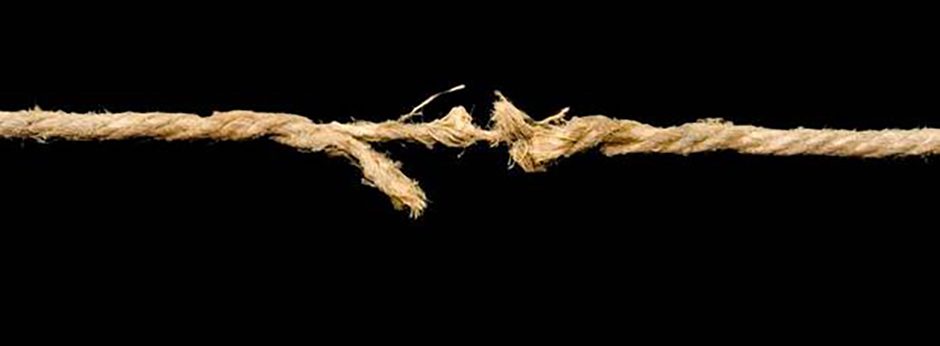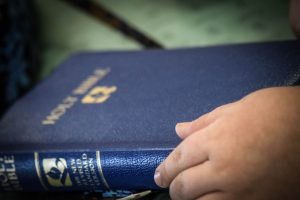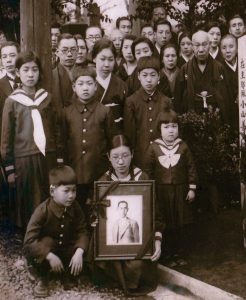Want to hear it? OK! Go ahead… press play:
United Church of Jaffrey
11/04/18
Ruth 1:7-18 | 2 Thessalonians 3:1-5
The Bible
Abraham begat Isaac;
Isaac begat Jacob;
Jacob begat Judas and his brethren;
And Judas begat Phares and Zara by Thamar;
Phares begat Esrom;
Esrom begat Aram;
Ah, the Bible!
Our vast scriptural tradition is filled with grand stories!
The Bible tells sweeping epics that chronicle the creation of the world…
Stories that remind us of the promises that God gave to our ancestors, as they embarked on great journeys into unknown lands.
The Bible tells of the enslavement of a people, and of the struggle for their emancipation.
Spectacular tales pillars of fire, of parting oceans, of fiery mountains, and long years in the wilderness…
The Bible tells of promised lands of milk and honey,
Of city walls tumbling down.
The Bible tells of Kings,
It tells of invading armies, and exiles
The Bible tells of prophets swallowed by whales
Of pillars of salt and chariots of fire.
The stories in the Bible are set against the backdrop of the geopolitical upheavals of the ancient Near East — a period of time when powerful military states like Egypt, Babylon, Assyria, Greece and Rome all came barreling through the little countries of Israel and Judah, creating havoc and sending the people fleeing for their lives.
The Bible, though, is not only concerned with the immense destinies of nations. This, as I said, was the backdrop.
In the foreground of the Bible are people.
People like you and me.
A Displaced Family
Aram begat Aminadab;
Aminadab begat Naasson;
Naasson begat Salmon;
Salmon begat Boaz by Rachab;
and Boaz begat Obed by Ruth;
Obed begat Jesse;
And Jesse begat David the king;
The Bible tells us that there was a famine in the land of Judah, and a man named Elimelech, who was from a little town called Bethlehem, decided to take up his wife Naomi, and their two sons Mahlon and Chilion, and try to improve their lot by moving to a neighboring land.
The family gathered their belongings and emigrated from the Kingdom of Judah which was on the Western shore of the Dead Sea, to the Kingdom of Moab, which was on the Eastern Shore of the Dead Sea.
How long did the journey take?
We don’t know.
Was the family traveling alone, or was there, perhaps, a caravan of other people fleeing the famine in Judah?
No idea.
Was the family stopped at the border?
Was there even border separating the two nations?
The text makes no comment.
Where, in Moab, did the family settle?
Were the Moabites even aware that Elimelech and his family were from from a foreign land?
The text does not give us any of these specific details.
However, we are told that not long after the family arrived in Moab, Elimelech, the died.
Let us pause for a moment and consider the situation.
Elimelech and Naomi and there two sons were forced, by famine, to flee from Judah. Were they starving? Perhaps.
They moved to a new country…
but then Elimelech dies.
A father and mother move to a new land in search of hope — of a new life. The father dies. Naomi’s slim cause for hope, strengthened by moving away from the famine, is now wearing away.
Her string of hope has worn down to a thread.
As we pause for a moment in Naomi’s precarious moment, we might well wonder why we are even being told all this?
Why is the Bible, which is concerned, on the grand scale, with the history of a nation, and people’s relationship with God, paying such close attention to the plight of a poor widow living in a foreign land?
It’s a good question.
Zentaro & Tama
David the king begat Solomon of her that had been the wife of Urias; Solomon begat Roboam;
Roboam begat Abia;
Abia begat Asa;
Asa begat Josaphat;
Josaphat begat Joram;
Joram begat Ozias;
Ozias begat Joatham;
Joatham begat Achaz;
Achaz begat Ezekias;
And Ezekias begat Manasses;
Manasses begat Amon
Amon begat Josias;
And Josias begat Jechonias and his brethren, about the time they were carried away to Babylon:
I never had a chance to meet my paternal grandfather. His name was Zentaro Koyama and I am reminded of him, at this juncture of this morning’s proceedings, for reasons that will become clear.
This story too, takes place against the backdrop of epic cataclysms and geopolitical grinding of gears.
Zentaro had, at one time, been a successful businessman, owning and running a kimono shop in the Ginza section of Tokyo — the retail area that, today, is the most expensive real estate per square meter, in Japan. It is said that Tama, his lovely young wife, would model his company’s kimono’s in front of the shop, and they were doing so well, that Zentaro took a loan to increase the size of the business.
It is entirely possible that if things had continued in this way, I might be the heir to a very substantial inheritance. Perhaps I would be independently wealthy, and have no need to work a day of my life.
But this was not to be.
At 11 in the morning of September 1st, 1923 a 7.9 magnitude earthquake hit the Tokyo / Yokohama area.
It would later become known as the Great Kanto Earthquake.
At 11AM, people in Tokyo were preparing lunch. Their houses were made of wood and paper, quickly caught fire. The earthquake and the resulting conflagration claimed over 100 thousand lives.
And, of course, my grandfather’s business was utterly destroyed.
Zentaro’s bank loans, though, were not destroyed in the earthquake. My grandfather’s business never recovered, and by the time my father was born in 1929, the Japanese army was beginning to test out its imperial reach in Manchuria.
The circumstances of the Koyama family went from bad to worse.
Zentaro died penniless in a Buddhist charity hospital in the Asakusa district of Tokyo in March of 1937. He perished of pneumonia. The once prosperous family was utterly destitute, the war in Asia was heating up, and my grandmother Tama, had to face a future alone, saddled with immense debt, and the well being of five children on her hands.
From Bad to Worse
After they were brought to Babylon,
Jechonias begat Salathiel;
Salathiel begat Zorobabel;
Zorobabel begat Abiud;
Abiud begat Eliakim;
Eliakim begat Azor;
Azor begat Sadoc;
Thank God, Naomi’s sons were of age. They could marry.
Naomi’s hard circumstances were made a little easier when she was able to find brides for her two sons, Mahlon and Chilion.
The young men, who, let us not forget, were living in a foreign land— took wives from among the Moabites. The wives names were Orpah and Ruth.
But in case we imagine that Naomi’s difficult life is set straight by this turn of events, the text tells us, quite matter-of-factly, that soon thereafter, the two new husbands, themselves died!
So Naomi is left behind again! And this time she finds herself responsible not for her own children, but her two daughter’s-in-law. The Moabite women, Orpah and Ruth.
In desperation, Naomi returns to her homeland of Judah. It seems that the famine was now over. When she gets back to her homeland, Naomi turns to her two daughter’s-in-law and she says:
“Turn back, my daughters, why will you go with me? Do I still have sons in my womb that they may become your husbands?…Even if I thought there was hope for me, even if I should have a husband tonight and bear sons, would you then wait until they were grown? Would you then refrain from marrying? No, my daughters, it has been far more bitter for me than for you, because the hand of the Lord has turned against me.”
Orpah, dutifully following her mother-in-laws command, kisses Naomi and takes her own path.
But Ruth stays.
“Do not press me to leave you
or to turn back from following you! (she says)
Where you go, I will go;
where you lodge, I will lodge;
your people shall be my people,
and your God my God.
Ruth’s words are the words of fidelity.
Where you go, I will go;
Where you go I will go
Ruth, a young Moabite woman, taken to a new land by her mother-in-law, shows faith.
She shows great faith.
Her faith is not in nationality.
Her faith is not in cultural identity.
Her faith is not in her husband.
Her husband is dead, and her cultural identity has been left behind.
Ruth shows faith…
But her faith is not even in God.
Her faith is in love.
Her love for her mother-in-law.
She trusts this love.
And this, ultimately is why we are hearing this story…
Because when hope is at its most thin, our hope must be in love.
Ruth, the Moabite woman, whose destiny hung by a thread, would soon meet a man named Boaz.
Boaz and Ruth would have a son, Obed.
And remember?
Obed Begat Jesse
And Jesse begat David, the king.
This moabite woman, who’s destiny hung by a thread…
This displaced person.
This refugee…
Would become the great grandmother of King David.
And 22 generations after David came…
Sadoc who begat Achim;
Achim begat Eliud;
Eliud begat Eleazar;
Eleazar begat Matthan;
Matthan begat Jacob;
Jacob begat Joseph the husband of Mary, of whom was born Jesus, who is called Christ. came Jesus who was known as Christ.
The very life of Jesus himself, like your life and mine, hung by a thread of destiny.
Ruth held that thread and gave it strength by her faith in love.
Ruth’s words were God’s words:
Where you go, I will go
Where you go I will go
If God is love, this means following the path of love.
Where you go I will go
Means choosing the road that leads to mutuality
Where you go I will go
Means shunning the path that leads to hatred.
Where you go I will go
These are Gods words, and they can be our words.
We take these words into our places of worship and they make community
We take them into the voting booth, and they create compassion.
Where you go I will go
The words of a displaced widow. Words to live by.
The words of God. Amen



